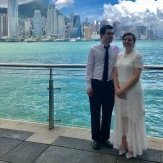Notice to Members: Logging into VisaJourney will soon require using your email address vs. screen name. Please ensure your email address is valid or contact admin@visajourney if you need help.
-
VisaJourney's Community Immigration Wiki contains a variety of useful immigration information. Use the search box above to find things! To add or to edit this wiki you simply need to be an established VJ member -- we encourage member contributions! Before adding new pages, make sure the page doesn’t exist already by doing a search. Often times it may be better to edit an existing page than to create a new one.
124 wikis
-
-

- Added by Captain Ewok
-
-
-
- Added by RR159
-
-
-

- Added by Kai G. Llewellyn
-
-
-

- Added by Captain Ewok
-
-
-

- Added by Captain Ewok
-
-
-

- Added by Greenbaum
-
-
-

- Added by Greenbaum
-
-
-

- Added by Captain Ewok
-
-
-

- Added by Captain Ewok
-
-
-

- Added by Captain Ewok
-
-
-

- Added by Captain Ewok
-
-
-

- Added by IsItLekker
-
-
-

- Added by Captain Ewok
-
-
-

- Added by Captain Ewok
-
-
-
- Comment by Silove
-
-
-

- Added by Captain Ewok
-
-
-

- Added by Captain Ewok
-
-
-
- Comment by DiamondEyes490
-
-
-

- Added by Captain Ewok
-
-
-

- Added by Captain Ewok
-
-
-

- Added by Captain Ewok
-
-
-

- Added by Captain Ewok
-
-
-

- Added by Captain Ewok
-
-
-

- Added by Captain Ewok
-
-
-

- Added by Captain Ewok
-
-
